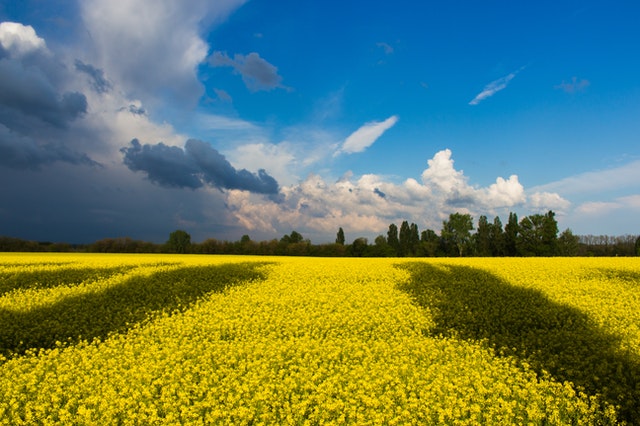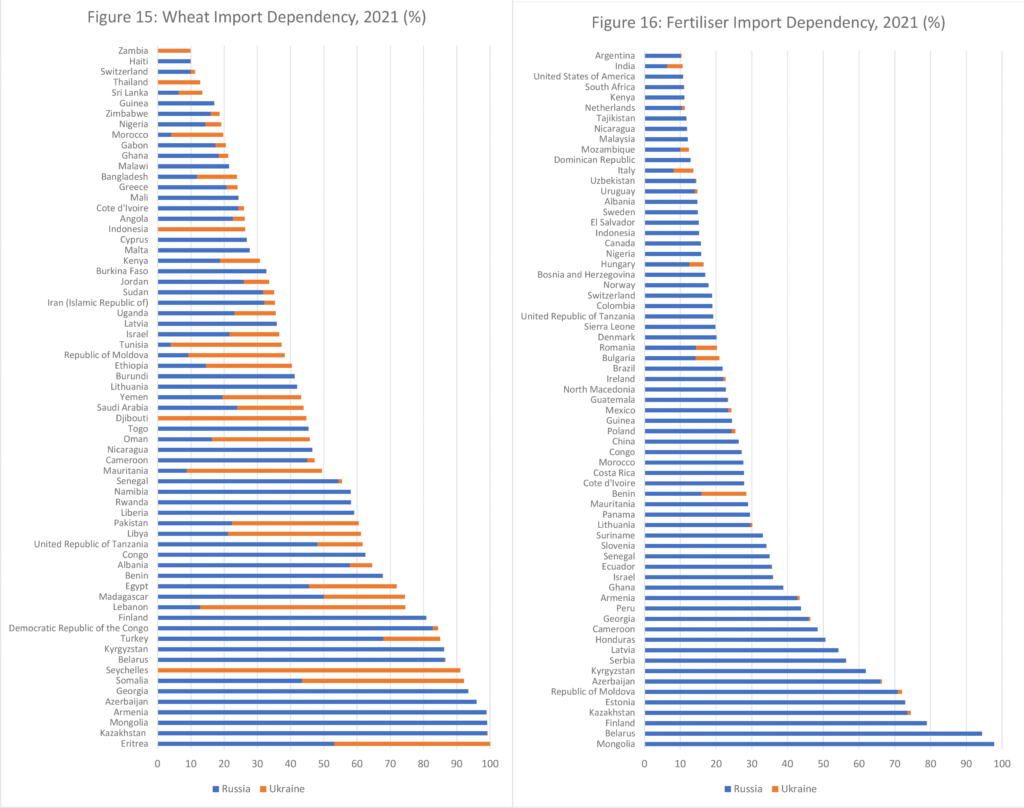The consequences of the Russian invasion of Ukraine on food security and biodiversity go beyond the countries’ borders. The prices of food and other essential agricultural commodities skyrocket and go beyond the capacity of many. As a result, more people are vulnerable to hunger. “How to prevent hunger” has become a hot topic, especially as conflict erupts in the breadbasket of the world between Russia and Ukraine, threatening both food security and biodiversity.
Food security and the Russia-Ukraine conflict
The effect of the Russian-Ukrainian conflict on food security and biodiversity goes beyond their borders. According to the FAO, Russia is the world’s largest exporter of wheat, nitrogen fertilizers and natural gas, the second-largest of phosphorus and potassium fertilisers, sunflower, rapeseed and crude oil (fuel) and the third-largest of barley. At the same time, Ukraine is the world’s largest exporter of sunflower seed oil, the second-largest of barley, the third-largest of rapeseeds and the fifth-largest of wheat. FAO estimates that about 50 countries (about 1.6 billion people) are dependent on both countries for over 30% of their wheat import needs and about 40 countries on Russia for over 20% of fertiliser imports. Certain food-insecure countries are more dependent on Russian wheat, while others rely more on Ukraine.
Any disruption of Russian and Ukrainian exports, either due to international trade embargoes or self-imposed export restrictions, jeopardises global supplies of food, fuel and fertiliser. After the war began on 24 February 2022, food, fertiliser and fuel prices have risen globally from an already-high base level. Moreover, the impact of recent price hikes are more severe on the Global South, as those countries are highly dependent on imported food products and fertilisers (and in certain cases also fuel) and simultaneously suffer from political instability, natural disasters or prolonged conflicts.
The war in Ukraine is causing civilian deaths, migration within and beyond the country’s borders and a serious disruption in the global food supply chain. Food and water shortages have spread in major war zones and the Ukrainian government banned exports of wheat, oats and other food staples until further notice on 9 March 2022. Economic sanctions against Russia have also disrupted the global food system, instantly raising food, fuel and fertiliser prices.
Separately, Russia banned all grain exports on 14 March 2022 until 30 June to member states of the Eurasian Economic Union to ensure its own food supply. These actions will further push food prices higher globally and the economic burden will fall on consumers.
These actions clearly indicate how civil society is vulnerable to conflict. A robust ecosystem that can stand against such uncertainties is needed to keep lines of production and biodiversity safe. The EU’s Green Deal aims to make resilient, healthy and climate-neutral food systems for Europe and beyond and improve biodiversity on land and in aquatic systems.
Drought, flood and storms endanger production lines more than ever. Providing enough food to both human and climate-induced victims would be unsustainable in the long term.
David Beasley, Executive Director for the World Food Programme (WFP), described the conflict in Ukraine as a “catastrophe on top of catastrophe” regarding global food security “because of supply chain issues like fuel costs, shipping costs and food costs.”
A FAO Information Note highlighted possible consequences of the ongoing war: “The capacity of many exporting countries to boost output and shipments may be limited by high production and input costs. Worryingly, the resulting global supply gap could raise international food and feed prices by 8 to 22 percent above their already elevated baseline levels.”

